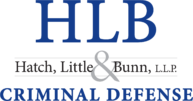3 Roads to DWI
What does it mean to “drive while impaired” in North Carolina? In Wake, Durham and Franklin Counties, many people know the legal limit of alcohol when driving is a 0.08. However, there are other ways that you can be found guilty of Driving While Impaired in North Carolina. In fact, if the State is able to prove that you are operating a vehicle on a street, highway, or public vehicular area, there are actually three different ways that the State can prove that you are driving while impaired.
Route 1: The first and most well-known route to proving that you are driving while impaired is the blood or breath alcohol content of a .08 (g/210L) or higher. The law reads that the State must prove “After having consumed sufficient alcohol that he has, at any relevant time after the driving, an alcohol concentration of 0.08 or more.” This means that the State can attempt to prove impairment by demonstrating that you blew (or had a blood level of) a .08 or higher after you were driving a vehicle. To be clear, this is not the portable breath test that is administered on the side of the road. Rather this is the larger contraption that you blow in to after you have been arrested and transported to the jail (or the bus in the example of a checkpoint).
Route 2: The second route is known as appreciable impairment. This route is a little less cut and dry and comes down more to the arguments of the prosecutor and your lawyer rather than the results of any single test. The law reads that State must prove that the person drove “while under the influence of an impairing substance.” The impairing substance can be alcohol or another substance, such as marijuana or cocaine. The courts have interpreted “appreciable impairment” under the DWI to mean a level of impairment that can be readily observed. This level can be however so slight. This route is commonly taken by the State when, for whatever reason, breath or blood test results are unavailable. What this looks like in a practical sense is that the State will try to argue that the results of the standardized field sobriety tests, and other observable factors, are sufficient to prove the crime of DWI beyond a reasonable doubt. The lawyers from the Criminal Defense Team, however, can man a defense there is reasonable doubt as to whether a person is impaired.
For example, if you have just been in a motor vehicle accident, can the State remove all reasonable doubt that any unsteadiness on your feet or inability to answer questions is related to impairment? An experienced criminal defense attorney may be able to show the court that there is a reasonable alternative to impairment and that any perceived impairment may have actually been caused by the accident or some injury related to it.
Route 3: The third route is all about having a Schedule I controlled substance in your body at the time of the driving. The law reads, “with any amount of a Schedule I controlled substance, as listed in G.S. 90-89, or its metabolites in his blood or urine.” Therefore, the State will hope to make it case by showing that a blood or urine sample can prove beyond a reasonable doubt that you had a Schedule I controlled substance in your body while you were driving. Common Schedule I substances include heroin , MDMA, psilocybin (mushrooms), mescaline and peyote.
Because there are actually three different ways that the State can prove that you are driving while impaired, it is imperative that you contact a Raleigh DUI/DWI Criminal Defense Attorney as soon as possible after you have been charged with DWI. You may be unaware of which road or roads the State is planning to use to try to convict you. Hiring an experienced lawyer for cases in Wake County, Durham County, and Franklin County, North Carolina from the Hatch, Little & Bunn Criminal Defense Team can help ensure that you are prepared for whichever direction the State come from. Contact us today to learn more about your case and your options.

